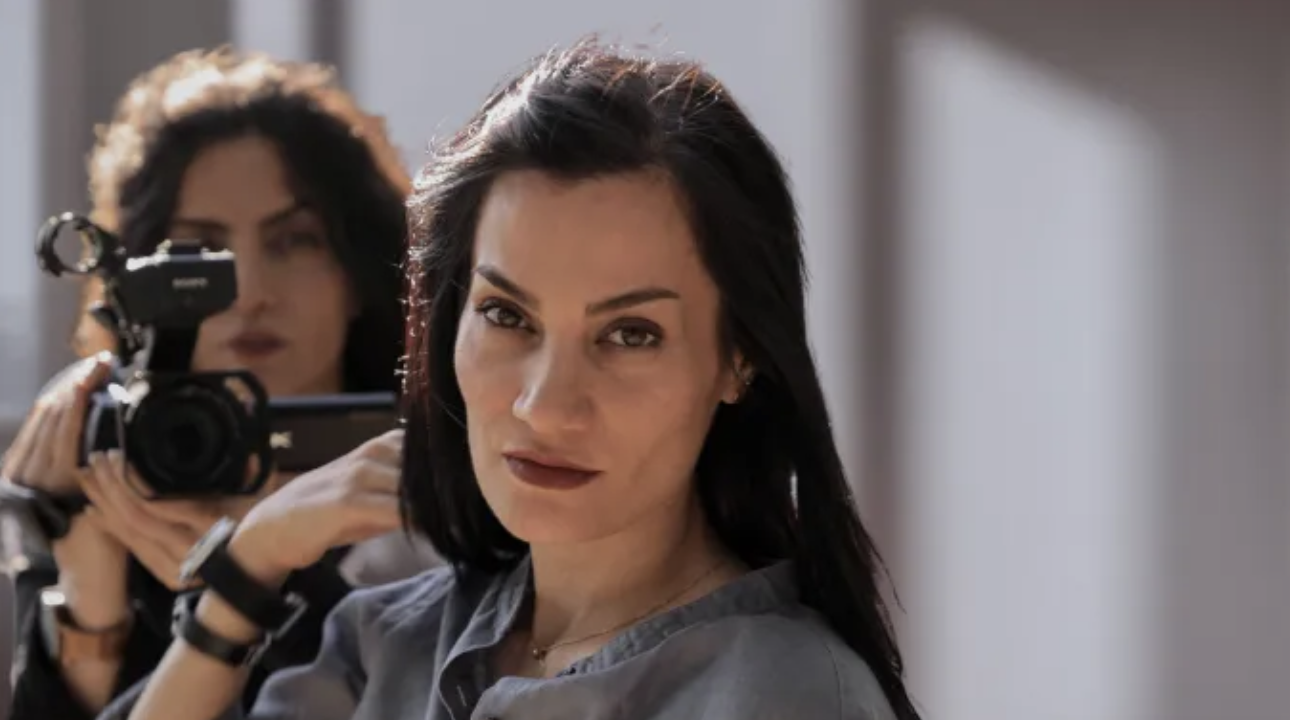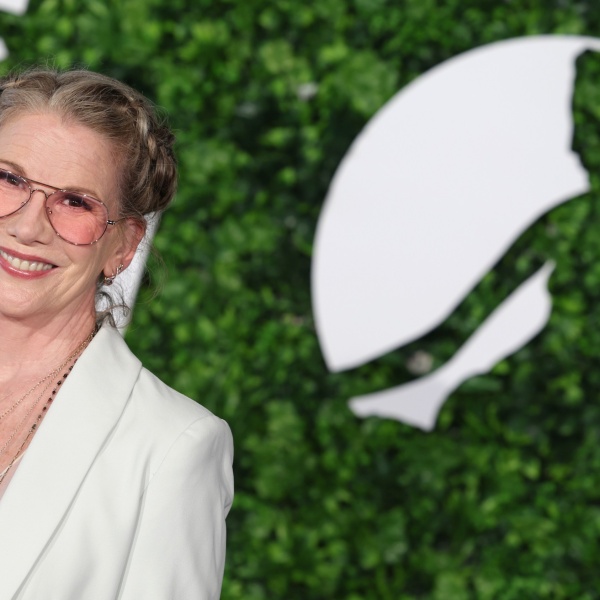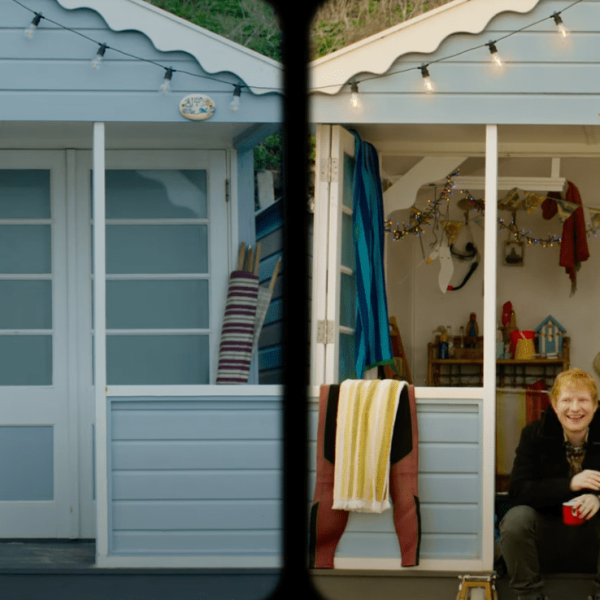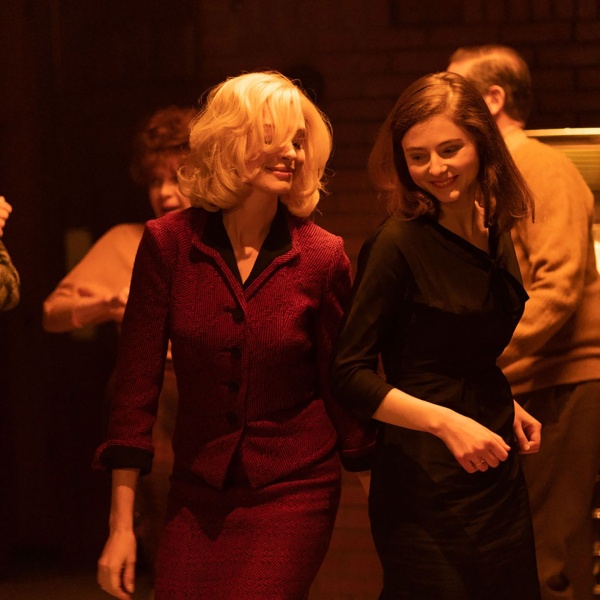Leila Amini’s “A Sisters’ Tale” centers on the filmmaker’s sister Nasreen, a Tehran housewife with a traditional husband, two young kids, and one big unrealized dream to sing. It’s an unfulfilled desire she shares with many a fellow “sister” in Iran, all of whom have been banned from expressing themselves through public singing since the establishment of the Islamic Republic in 1979. And it’s a story Amini followed closely with her camera as a not neutral observer for seven years, forever rooting for Nasreen to pursue her passion while simultaneously fearing the consequences if she in fact succeeds.
And those consequences have less to do with the political (wherever there are autocracies there are ways of circumventing the system) and more to do with the personal. For Nasreen’s husband Mohamad, a motorcycle technician as consumed by his work as Nasreen is with her dream, is a religious conservative not too keen on having a singing spouse. Though rather than exert his patriarchal dominance over Nasreen he chooses simply to avoid her, both emotionally and physically, staying out late with friends and colleagues nearly every night. And then there’s 10-year-old Hamid and baby Hana, caught between a responsible but distant dad and a strong-willed mom trapped in a life she was never meant to have.
In other words, “A Sisters’ Tale” is as timeless and universal as it is specific. We tag along as Amini, always behind the camera but a constant presence asking questions and listening intently, films Nasreen in her more rebellious moments – getting a tattoo or covertly meeting with male musicians willing to break the misogynistic rules. (It’s clear that Nasreen’s connection to the wider women’s rights movement in Iran and beyond is only made possible through social media. For thanks to her smartphone, Nasreen is as aware of others challenging the status quo — like the Armenian singer “Melanie” — as she is untethered and alone.) But also in painfully vulnerable times as Nasreen struggles with postpartum depression, and wonders if cosmetic surgery might just save her fraying marriage – a union she never asked for and still seems to regret.
All the while the tensions build outward like any family drama. Their mother and other sister, all tight on money since their father’s death, fear for Nasreen’s wellbeing if her artistic pursuit were to shatter the safety of her middle-class life. As does Amini, who is also guiltily aware of the sacrifices the eldest sibling made, unable to attend art school to study music while she herself was allowed to chase her cinematic dreams. (While Nasreen was pressured into an arranged marriage, Amini was able to graduate with a BA in cinema and an MA in Dramatic Literature at the Art University of Tehran, Faculty of Cinema & Theater, before going on to debut her first feature “Hasookheth,” which was ultimately broadcast by the BBC.) There are no right decisions, only new paths to be forged.
Yet before this can happen a transformation must occur — a personal revolution within oneself. And for Nasreen her struggles with depression also seem to illuminate an awareness that she’s been gaslit by society all along. One of the most striking scenes in “A Sisters’ Tale”occurs on a nighttime drive in a car, Nasreen at the wheel. She recalls being in a restaurant nearby with Mohamad where she disclosed to him how unhappy she was. It was a confession her husband found downright baffling since Nasreen was so successful — a mother with two kids! But for Nasreen it was a wakeup call, the terror of becoming an old woman whose identity was that of mother not singer suddenly staring her straight in the face. “Is this what I should teach to my kids? Forget about your dreams? Forget about your life?” she rhetorically asks her sibling behind the lens.
And because Amini (and thus we) are clearly on the side of Nasreen, there’s a kernel of discomfort in those words. For even today, the idea that a mother might not view motherhood as her crowning achievement is still a taboo admission to make in most corners of the world. Though Nasreen is a doting caregiver, steadfast in her commitment to her kids — even fighting for custody when she decides to finally file for divorce — she’s also, perhaps by necessity, self-involved. Which seems to come mostly at the expense of her young son. Indeed, Nasreen is not above asking the little boy to loan her money for singing lessons that his dad refuses to pay for. Or to keep his baby sister entertained while she works on lyrics behind her bedroom door. While Nasreen certainly does deserve to reclaim her true self, the notion that no one will get hurt in the process is a bit of a pipe dream. Luckily, little Hamid happens to be a modern-day mama’s boy, a feminist in his own right, anxious to one day call a pioneering Iranian singer mom.
Grade: B+
“A Sister’s Tale” screened at the 2024 Toronto International Film Festival after premiering at the Locarno Film Festival. It is currently seeking U.S. distribution.
Want to stay up to date on IndieWire’s film reviews and critical thoughts? Subscribe here to our newly launched newsletter, In Review by David Ehrlich, in which our Chief Film Critic and Head Reviews Editor rounds up the best reviews, streaming picks, and offers some new musings, all only available to subscribers.





